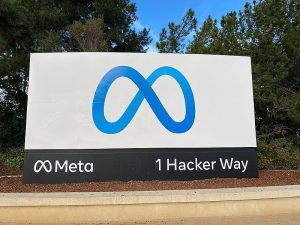Enterprise pros say cloud, Big Data prompting radical IT shifts
![]() The convergence of cloud computing and Big Data analytics are generating some radical rethinking about the way IT infrastructure is deployed, judging from the comments of early adopters who were interviewed at Hewlett-Packard Co.’s HP Vertica Big Data Conference last week.
The convergence of cloud computing and Big Data analytics are generating some radical rethinking about the way IT infrastructure is deployed, judging from the comments of early adopters who were interviewed at Hewlett-Packard Co.’s HP Vertica Big Data Conference last week.
Several practitioners outlined new corporate strategies based on the superior economics of the cloud or said they would replace multiple relational databases with a distributed Hadoop infrastructure and Vertica serving as the analytics platform.
One of the most radical scenarios was described by Alan Nance, vice president of technology for Dutch electronics giant Koninklijke (Royal) Philips (see video below). Philips is replacing its highly customized divisional IT environments with hybrid cloud services based on standard and virtualized hardware and software.
Consumption purchases
Philips buys these components in the same way it buys public cloud services. Philips no longer pays up-front capital expenditures or startup and termination charges for IT infrastructure. Instead, it pays only based on usage. Nance said Philips presented a list of 12 requirements to all its primary suppliers in four separate day-long sessions. Those who were unable to adapt to the consumption-based model either had to find an intermediary to sell through or were replaced.
The new model has transformed Philips’ IT procurement process. Requests for proposals (RFPs) “went out the window,” Nance said. Everything that comes into Philips IT is now pre-contracted so that the company has no specific financial commitments.“Finance was used to us coming to them for approvals with capex [capital expenditure] and depreciation [estimates]. Now we send them forms filled with zeros. When they call us to ask why, we say, ‘Well, it’s your form.’”
The cloud is also changing the supplier infrastructure. “Companies that didn’t exist four years ago are now critical to our value proposition,” he said.
Not a panacea
Philips is also using public cloud services, but security and compliance remain major issues. “Many of the large players haven’t looked at security globally,” Nance said. “They don’t look at requirements in countries like Germany and France” where data must be stored in specific geographies. Russia, for example, recently passed a law requiring that all data gathered in Russia must stay in the country.
This, he said, is a particular challenge for Amazon Web Services (AWS) and Salesforce.com. “We don’t believe that one data center in the European Union is sustainable long term. But we don’t want 153 different data centers either. Globalization requires non-scalable investments in local experts. To be global you need a local footprint.”
Given these concerns, “We would rather look at a company like HP that is global and that has a lead in Big Data with HAVEn and Vertica,” he said. However, he wouldn’t rule out the possibility of using alternatives from Pivotal Software, Inc. and Amazon also has an alternative. “The analytics platform definitely has a role to play.”
From Netezza to Vertica
Several of the practitioners interviewed on theCUBE are moving corporate data from relational data warehouses to the distributed Hadoop and Vertica platforms. Online furniture and home furnishings company Wayfair.com LLC moved from an IBM Netezza data warehouse appliance to the Apache Hadoop/Vertica because Netezza was too slow to meet organizational needs for data capture and analysis, according to systems architect Jordan Chernev. “We needed to capture large quantities of clickstream data at high speed and analyze it to understand people’s reactions to the Web site and how we can help customers find what they are looking for,” he said.
Blue Cross/Blue Shield Association
The Blue Cross/Blue Shield Association in Chicago replaced dozens of data warehouses with single Hadoop repository with strong security and has seen performance improve by a factor of 10, said Janath Manohararaj, team lead for database services. The association used to support each of its 37 member independent members with separate warehouses from multiple vendors. “There was data everywhere,” Manojararaj, said. Standardization not only delivered better performance but also reduced storage and licensing costs.
Cardlytics
Cardytics, Inc. moved from an RDBMS-based analytics platform to Vertica/Hadoop to cut response times, said Craig Snodgrass, chief strategy officer for the financial services company. Cardlytics partners with banks to analyze shopping patterns of their customers as revealed by their debit card purchases and then provide custom ads to those customers through the bank Web site.
Over the last 15 years card purchases have grown from 15 percent to 70 percent of all consumers purchases, with the majority being on debit cards. Cardlytics analyzes the debit purchases received by partner banks for indications that individual card holders are buying in specific areas – for example, travel services or baby products – but not from Cardlytics customers. Cardlytics can then attach a discount offer from one of its customers to the card holder’s click stream in the bank. It does not take any personally identifiable information on the customer – just that he or she made a specific purchase – and does not share any of the purchase data with its retail customers. The offer is attached to the debit card, with no paper involved. If the customer makes the purchase offered with the card, the discount is automatically deducted from the price at the time of purchase.
Initially, Snodgrass said, Cardlytics used an RDBMS-based analysis system from an unnamed vendor. “When we landed our first major bank we found that we couldn’t keep up with the volume of traffic.” It solved this issue by moving to Hadoop and Vertica.
Full360
Eric Valenzuela, head of business development for business services provider Full360, Inc. told a similar story with a twist – it runs on Amazon Web Services (AWS) rather than the HP cloud. Full360 helps businesses unify their data on AWS storage using Vertica as the platform to support data analysis. The advantage of Amazon, he said, is that it is a standardized environment worldwide. “Amazon will run the same every time you go to it. So if you have a script designed for Amazon, you know it will run. If you do that on premise in a company’s data centers then you have to understand the specific stack you are trying to run the script on each time.”
Image courtesy Hewlett-Packard Corporation
A message from John Furrier, co-founder of SiliconANGLE:
Your vote of support is important to us and it helps us keep the content FREE.
One click below supports our mission to provide free, deep, and relevant content.
Join our community on YouTube
Join the community that includes more than 15,000 #CubeAlumni experts, including Amazon.com CEO Andy Jassy, Dell Technologies founder and CEO Michael Dell, Intel CEO Pat Gelsinger, and many more luminaries and experts.
THANK YOU













